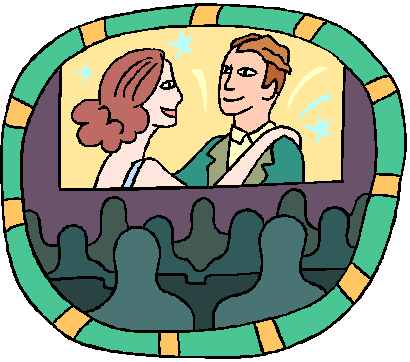.
How do
we Read?
That
sounds like a simplistic question. Or maybe even a stupid one. But we
must remember that there is no such thing as a stupid question. Most of
us learn to read at a very early early age. We can recognize characters
and words and put meaning to what we see. But, ... there is a problem.
I
read Dan Brown's "Da Vinci Code" recently. It is fiction and I
read it for the enjoyment of a good mystery. It does live up to that
promise although I found it a bit contrived and somewhat predictable in
places. It held my interest all the way through and I enjoyed it.
However, the endorsers of the book and the author make a major point of
stressing that there was a great deal of research done and that a great
deal of the book is based on fact. Some readers may come away with a
view of the Catholic Church and it's teachings that is just not right. I
don't know if the author has an ax to grind or if he just did sloppy
research.
Sandra
Miesel wrote an article, "Dismantling The Da Vinci Code" which
exposes Brown's "research" and concludes with:
Brown’s
Mess
In
the end, Dan Brown has penned a poorly written, atrociously researched
mess. So, why bother with such a close reading of a worthless novel? The
answer is simple: The Da Vinci Code takes esoterica mainstream.
It may well do for Gnosticism what The Mists of Avalon did for
paganism—gain it popular acceptance. After all, how many lay readers
will see the blazing inaccuracies put forward as buried truths?
What’s
more, in making phony claims of scholarship, Brown’s book infects
readers with a virulent hostility toward Catholicism. Dozens of occult
history books, conveniently cross-linked by Amazon.com, are following in
its wake. And booksellers’ shelves now bulge with falsehoods few would
be buying without The Da Vinci Code connection. While Brown’s
assault on the Catholic Church may be a backhanded compliment, it’s
one we would have happily done without.
Sandra
Miesel is a veteran Catholic journalist.
You
may read the entire piece at: http://www.crisismagazine.com/specialreport.htm
I
am reminded of an assignment I had as a freshman in college. I was
to write on "The Lost Children of Mu". It took a long time to
discover that the "Children of Mu" referred to the survivors
of an advanced ancient civilization similar to the land of Atlantis.
(Internet search was not available then.) I
was fascinated by the stories and thought I did a fantastic job on my
paper, only to be rewarded with a failing grade. I had given only the
side of the promoters of the myth and had not included anything
debunking it.
Was
Brown guilty of bad research? A clue may be found in his previous book,
"Angels & Demons", in which he uses the phrase "You
don't need to be infected with cancer to diagnose it". It is used
in connection with a study of religion and the Catholic church. Does
Brown consider the church a cancer? That could explain his apparent bias
in writing about it.
Many
authors do intensive research in order to make their fiction believable
and we have become accustomed to it. The danger is that books like this
can sway the gullible and reinforce the wrong perceptions of those who
want to believe that the Church is a sinister entity.
The
point is that we must know HOW to read. We must know the motives and the
competence of the author and recognize the difference between fact and
fiction.
It
is easy to know that J. R. R. Tolkin wrote fiction. He makes it obvious.
We must be very careful of authors who wrap their fiction in covering of
what they claim to be truth.
I
often found my mother, in her later years, saying things that were
questionable and when asked about it, would say, "Well, it was in
the paper." She was having a hard time distinguishing between news
and advertising.
Even
so, in that same class in my freshman year, required reading was a piece
called, "How to read the Chicago Tribune." It quoted an
article from the paper (very carefully selected, I am sure). Each sentence
in the article had footnotes which pointed out that it was false, partially
false, or taken out of context. Only one sentence of five words had a
footnote that said, "This statement is entirely true."
So,
it isn't enough to recognize and understand characters and words. No
matter if we are reading for enlightenment, enjoyment, or both, we
should make an effort to know the competency and motives of the author
in order to separate fact, fiction and hidden influences.
Don
Plefka
1/7/2004
|
Our entertainment and
It's effect on our society.
I have long been
troubled by the trend of the entertainment media to disregard high moral
values and to promote instant gratification and selfish behavior as the
norm.
This page reflects my views and the views of others on the subject. |
 |
 |
|
 |
 |
|
How do
we Read?
Don
Plefka
1/7/2004 |
The
World of Grandpa Don
www.plefka.net |
|
|
Free JavaScripts provided
by The JavaScript Source
|



